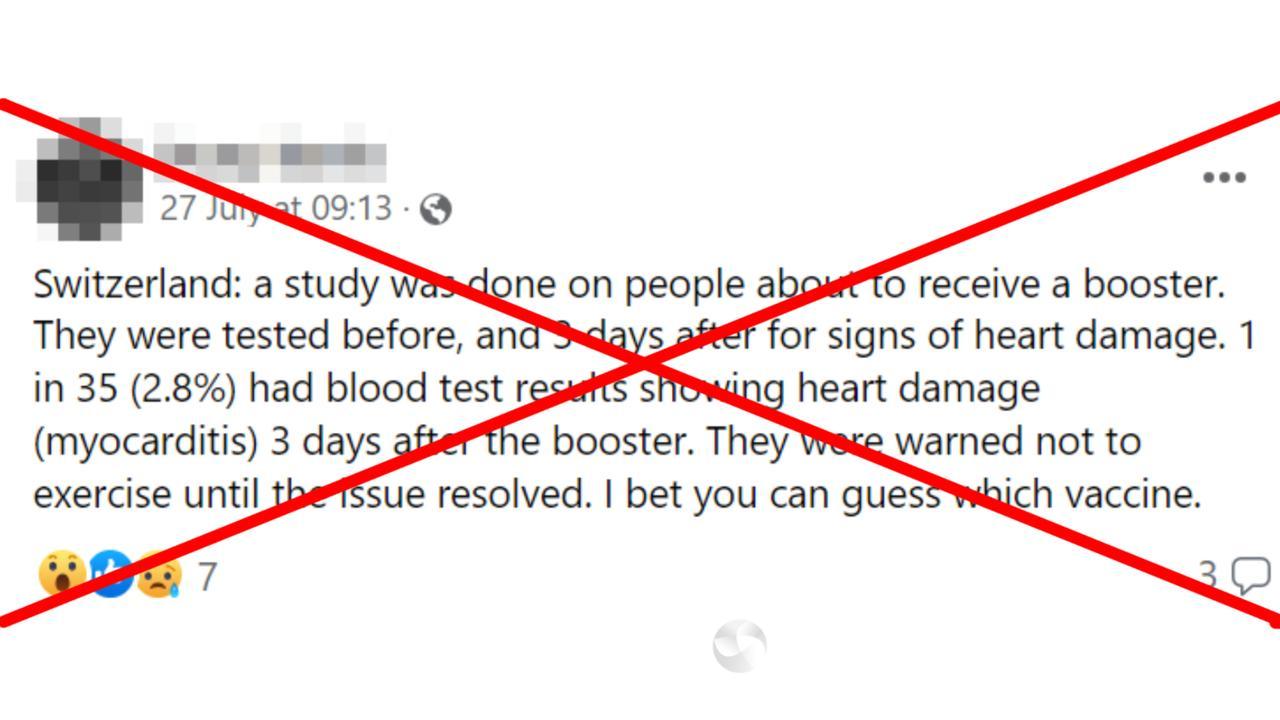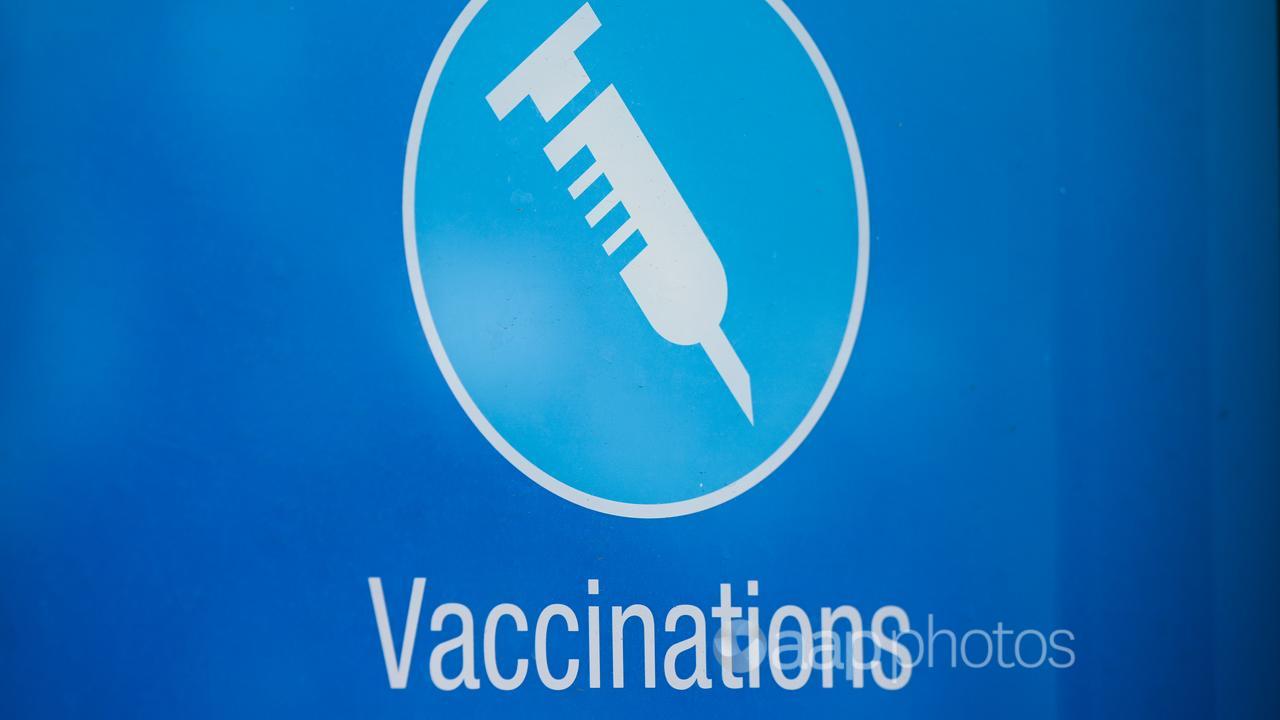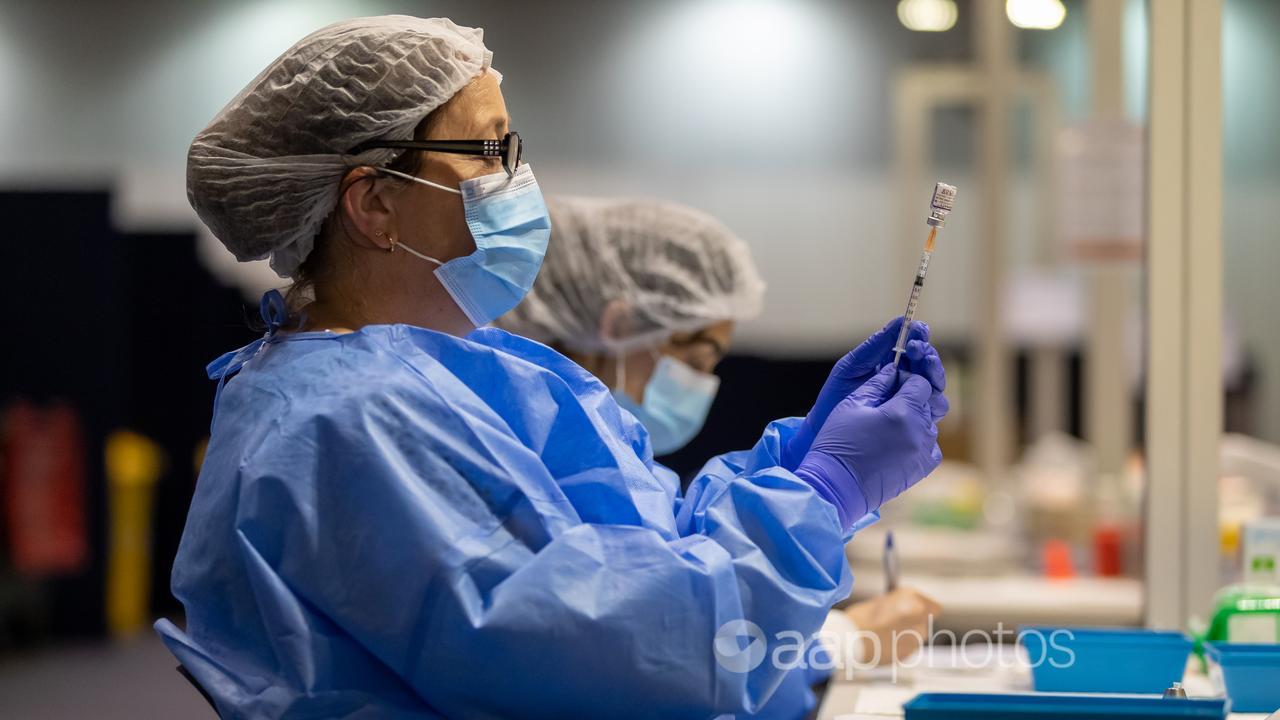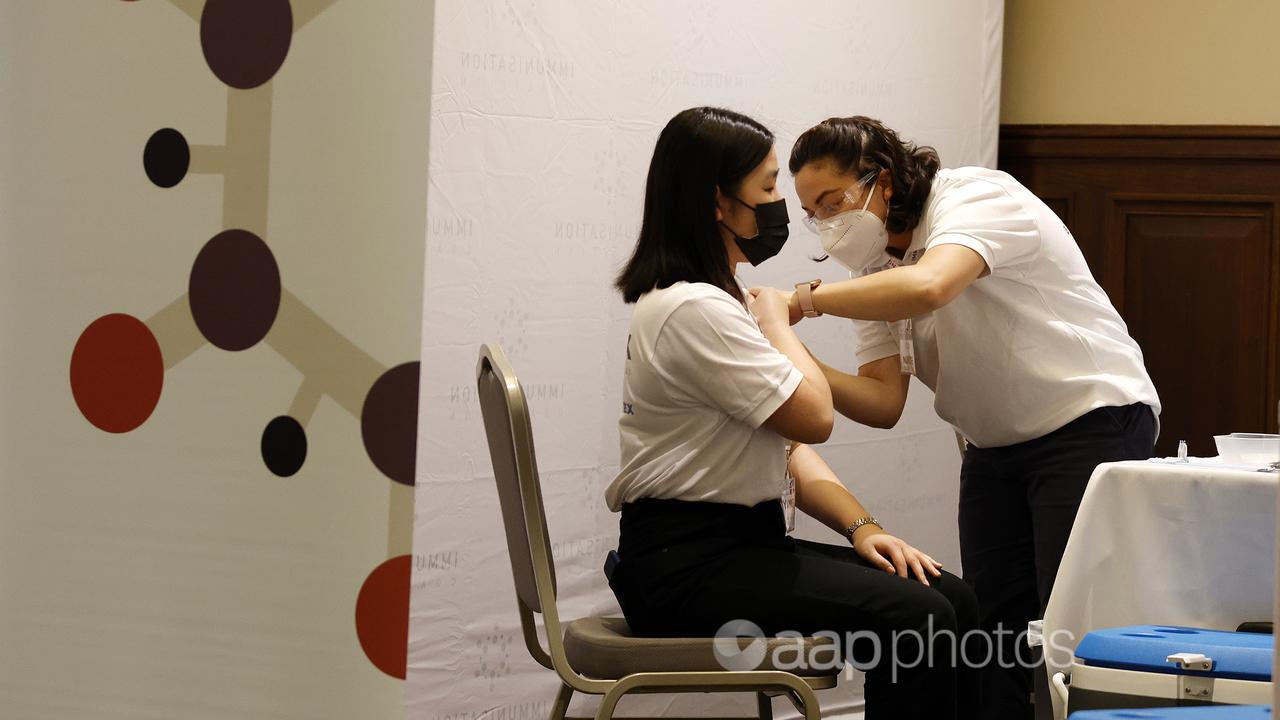It’s being claimed a study by researchers in Switzerland found COVID-19 vaccines cause myocarditis in one in 35 people.
This is false. The study found one in 35 participants reported levels of elevated troponin, which is not the same as having the inflammatory heart disease.
The study is being misinterpreted or exaggerated by social media users, as seen here, here, here, here and here.
One Facebook post (archived here) states: “Switzerland: a study was done on people about to receive a booster. They were tested before, and 3 days after for signs of heart damage. 1 in 35 (2.8%) had blood test results showing heart damage (myocarditis) 3 days after the booster. They were warned not to exercise until the issue resolved. I bet you can guess which vaccine.”
Another post (archived here) claims: “1 in 35 vaccine harmed with Myocarditis in INDEPENDENT Swiss study of 777 people who had Moderna booster…”

The July 2023 study investigated the effects of COVID-19 booster vaccination on 777 employees of the University Hospital Basel in Switzerland.
The researchers recruited participants who received a Moderna booster dose and then measured the level of troponin in their blood three days after vaccination.
William Schaffner, a professor of preventive medicine at Vanderbilt University Medical Center, said troponin was an enzyme released when heart cells were injured.
“It can be used as an assessment of the degree of heart injury that occurs,” Dr Schaffner told AAP FactCheck, with a high concentration indicating a possible heart condition.
A normal range of troponin in the bloodstream detected by the test used in the study is zero to 14 nanograms per litre (ng/L).
Participants were only tested for troponin levels after receiving the vaccine, not before.
Elevated troponin was detected in 40 cases, but the researchers excluded 18 because an alternative cause other than vaccination was most likely (page 4).
This left 22 participants – 2.8 per cent of the group, or one in 35 – without an explanation for elevated troponin other than receiving a booster dose three days prior.

Tim Chico, a professor of cardiovascular medicine at the University of Sheffield, said the claims were not accurate.
“2.8 per cent of people had a troponin level slightly above the normal range after receiving the vaccine, but these participants did not report symptoms suggestive of myocarditis any more often than people with troponin levels in the normal range,” he told AAP FactCheck in an email.
“This study also does not prove that the vaccine caused the increased troponin levels in those 2.8 per cent of people… To know whether or not the vaccine caused the troponin levels would need people to be randomised to receive the vaccine or not.”
Leslie Cooper, chair of the Department of Cardiovascular Medicine at the Mayo Clinic and an expert on myocarditis, said the study reported a slight elevation in “high sensitivity troponin which in and of itself may not reflect myocarditis.”
“There was no increase in clinical symptoms or documented imaging findings to correlate with the elevation in troponin,” Dr Cooper told AAP FactCheck.

The study’s co-author, Professor Christian Müller, referred AAP FactCheck to the paper’s discussion section (page 7), but said “as very often on this topic, many massively over-interpret it and others completely ignore the findings”.
The study notes “all cases were mild with only a transient and short period of myocardial injury” with the highest troponin concentration recorded among the participants being 35ng/L (page 7).
It concludes “no definitive case of myocarditis was found” (page 6).
Prof Schaffner noted there was a recognised small increased risk in clinical myocarditis after COVID-19 vaccination.
“This is associated with the second dose of the vaccine – the mRNA vaccines – and occurs more prominently among young men and older male adolescents,” he said.
“If you get COVID the risk of myocarditis is many times higher than the risk after (the) vaccine.”
AAP FactCheck has previously addressed claims that misinterpreted studies about myocarditis here and here.
The Verdict
The claim a Swiss study found one in 35 people developed myocarditis after receiving a COVID-19 booster vaccine is false.
The study found 22 out of 777 participants reported elevated troponin, which can be associated with the heart disease, where a cause other than vaccination could not be determined. However, no definitive cases of myocarditis were discovered.
Experts told AAP FactCheck elevated troponin was not necessarily myocarditis and no other tests were done to confirm a clinical diagnosis.
False – The claim is inaccurate.
AAP FactCheck is an accredited member of the International Fact-Checking Network. To keep up with our latest fact checks, follow us on Facebook, Twitter and Instagram.
All information, text and images included on the AAP Websites is for personal use only and may not be re-written, copied, re-sold or re-distributed, framed, linked, shared onto social media or otherwise used whether for compensation of any kind or not, unless you have the prior written permission of AAP. For more information, please refer to our standard terms and conditions.


















